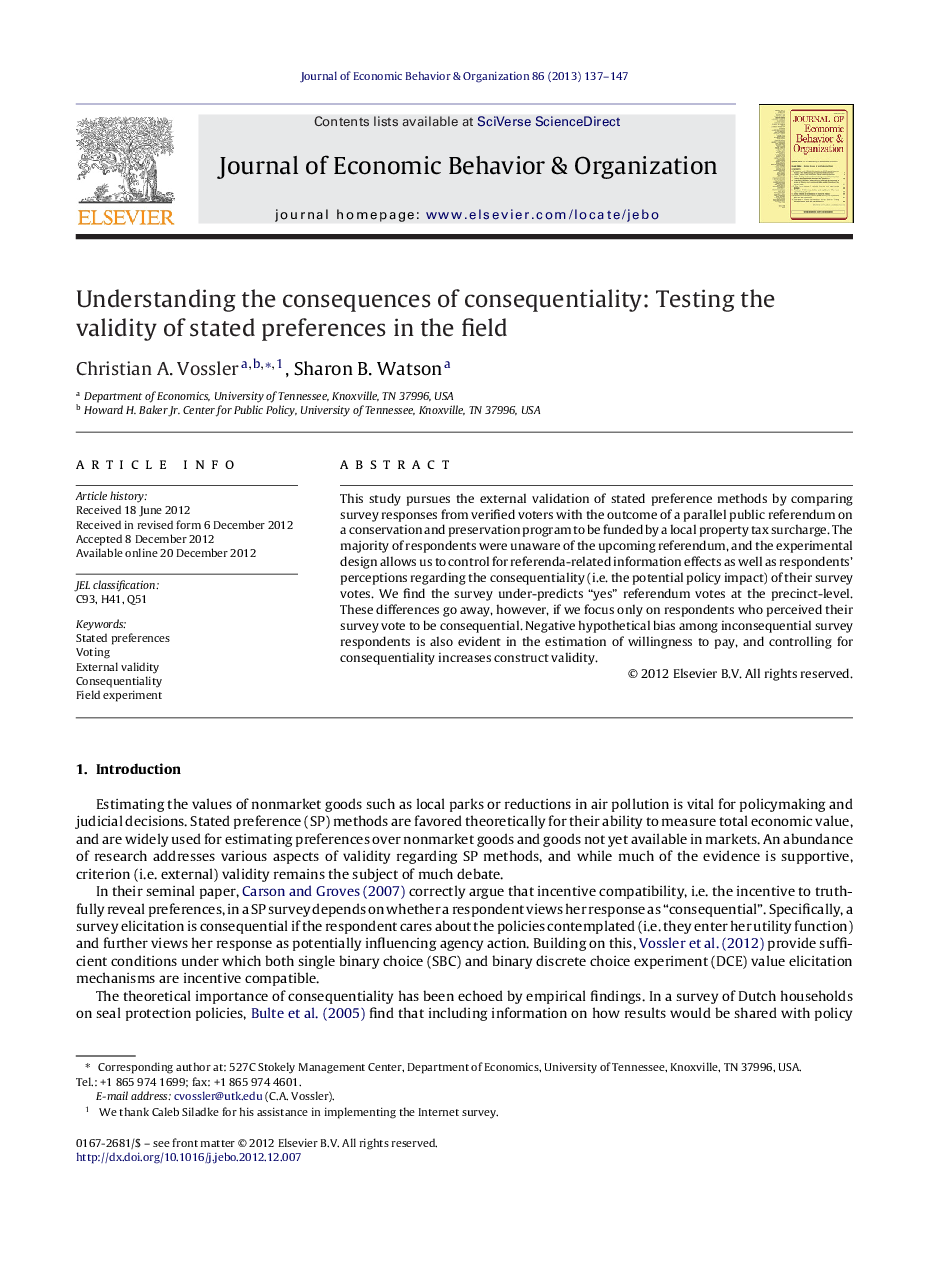| Article ID | Journal | Published Year | Pages | File Type |
|---|---|---|---|---|
| 883666 | Journal of Economic Behavior & Organization | 2013 | 11 Pages |
This study pursues the external validation of stated preference methods by comparing survey responses from verified voters with the outcome of a parallel public referendum on a conservation and preservation program to be funded by a local property tax surcharge. The majority of respondents were unaware of the upcoming referendum, and the experimental design allows us to control for referenda-related information effects as well as respondents’ perceptions regarding the consequentiality (i.e. the potential policy impact) of their survey votes. We find the survey under-predicts “yes” referendum votes at the precinct-level. These differences go away, however, if we focus only on respondents who perceived their survey vote to be consequential. Negative hypothetical bias among inconsequential survey respondents is also evident in the estimation of willingness to pay, and controlling for consequentiality increases construct validity.
► First comparison of a representative stated preference survey and referendum voting. ► Evidence suggests external validity is linked to beliefs over policy consequences. ► Study helps reconcile results from recent field studies and controlled experiments. ► Controlling for beliefs reduces elicitation bias and increases construct validity.
